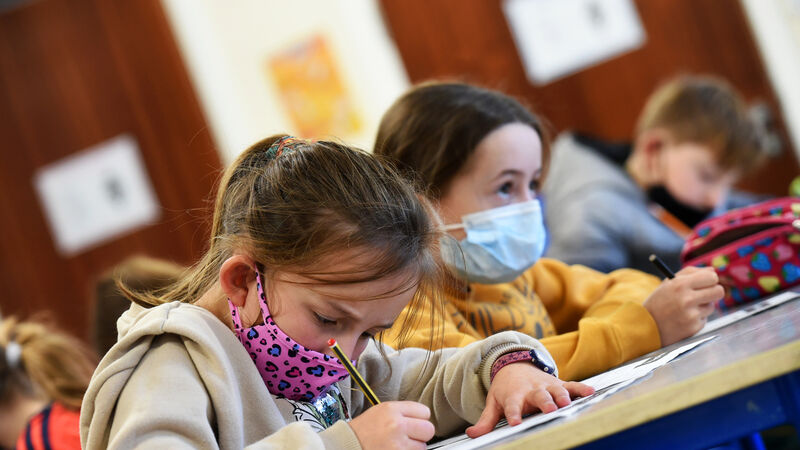Vaccines for young children to arrive within two weeks as Nphet considers more restrictions

Pupils wearing face mask coverings during lessons in the classroom at Ballintemple National School, Crab Lane, Cork. Covid-19 coronavirus global pandemic.
The move comes as public health officials will consider new restrictions today to get the virus under control over the Christmas period.












